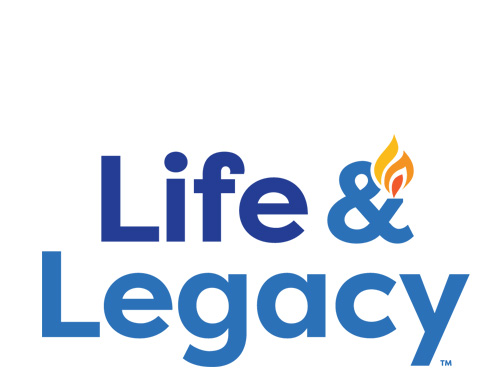Online Instruction Yields ‘Phenomenal’ Results for Solomon Schechter Community
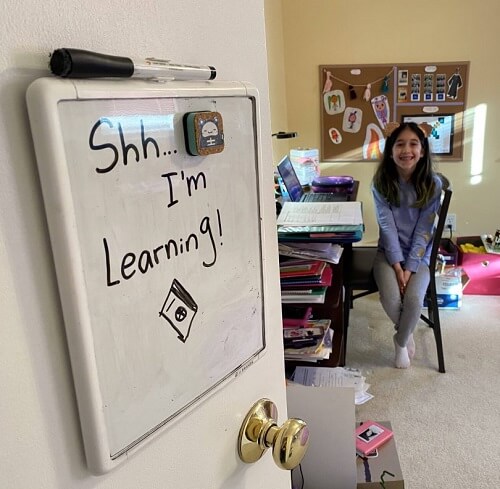
Excerpt taken from We-Ha.com: https://we-ha.com/online-instruction-yields-phenomenal-results-for-soloman-schechter-community/?fbclid=IwAR1zhVKWV6j8hGiCOa5rmGWwtGgpKP3M5xqUlrD793h-EzsPArppnJUFZ-I
Solomon Schechter has moved to online instruction in the wake of the COVID-19 outbreak, a transition that has delivered promising results thus far.
By Dexter McCann
The COVID-19 outbreak has forced West Hartford’s public and private schools to prepare for alternative instruction, and Solomon Schechter Day School has made the best of a tough situation by moving classes online, allowing for remote learning.
Solomon Schechter, a private Jewish school for students aged 2 through eighth grade, began their online instruction program on Tuesday, a transition that Head of School Andrea Kasper described as “really phenomenal.” The move to remote learning hasn’t been without its hitches and glitches, but on the whole online delivery has “hit the mark as we [Solomon Schechter] expected,” according to Kasper.
Preschool and elementary school students have been using a service called SeeSaw to receive instruction, a digital service that allows both teachers and students to post videos and send messages. Middle school students have been using Google’s educational platform, which includes Google Classroom and Google Meets, a service that allows teachers to lecture to their students live. These services provide a way for Solomon Schechter students to resume their studies, but the transition to online instruction has been so much more than an academic one.
Kasper and the rest of the Solomon Schechter team have focused on “keeping kids engaged and giving them structure for their day,” a process that involves social components in addition to academic instruction.
Kasper noted that it could be extremely difficult for students to adapt and succeed in an unfamiliar environment, especially without the structure and social interaction that is taken for granted at school. To combat that, the school’s online learning program is as much focused on students interacting with each other as anything else.
Middle school teachers can use Google Meets to divvy up students into small groups, where they can interact among themselves and with the teacher at the same time. The elementary school students have been using the SeeSaw platform to share art and language arts projects with their classmates as well as their teachers.
The emphasis placed on social interaction and teamwork has enabled teachers to get creative with their assignments. Cooper, an eighth grade student, has been working with classmates to create a humanities podcast using an assigned set of primary documents. They’re using online software to record the podcast, which will involve a cameo from a guest professional.
Cooper noted that the small size of classes has made the transition to online classes easier than she anticipated. Even though classes had been online for just two days, Cooper said things “have been working pretty well,” and mentioned that there had been just one glitch to that point.
Lily, a seventh grade student, said that she was nervous when the move to online was first announced.
“My first impression was that it would be a lot to adjust to,” she remarked.
However, as she settled into a routine, things got much easier. “It’s just like normal school now … it’s been very easy to communicate with teachers.”
Lily described the ease at which she was able to communicate with both her teachers and classmates via the online software, and mentioned that she had been working on presentations in art and humanities that would be delivered using the google meets platform.
It hasn’t just been students who have been receptive to the transition to online instruction. Teachers, too, have adapted seamlessly to digital learning.
Teachers have been “having a lot of fun because they’re finding they can be really creative,” Kasper added.
Teachers have been amazed by how flexible and patient students have been thus far, exhibiting the same behavior at home that they had in class despite a difficult and unfamiliar environment.
Parents too have been appreciative of the efforts made by administrators, teachers, and students. Kasper has received several heartfelt thank you messages from parents, and she noted that “parents have been so excited that their kids have taken to initiative.”
“Parents have been so appreciative and thoughtful,” Kasper added.
As online classes consider amidst the uncertainty of COVID-19, Solomon Schechter and its administrators will continue to treat their school and community as “more than an academic institution.”
To do that, teachers and administrators have to think of pupils as “children beyond being students,” according to Kasper. That involves accounting for academic, social, and emotional needs, and keeping instruction as “meaningful and engaging” as possible.
Certainly, online instruction and the changes it entails pose an enormous challenge for everyone in the academic process. Even during the first couple days of online learning, Solomon Schechter has taken huge strides to meet and overcome that challenge, and Kasper has “never felt so proud to be head of this school.”
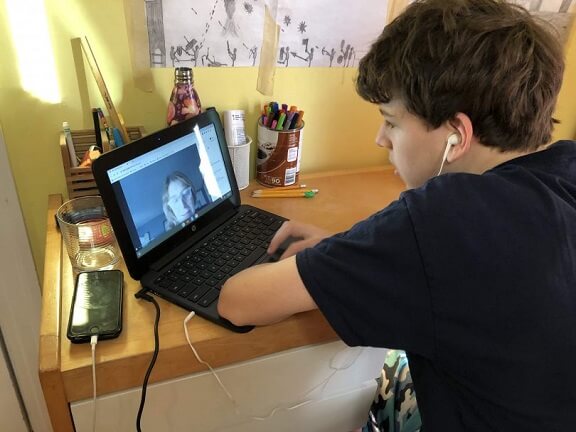
A Solomon Schechter student engaging in online learning.
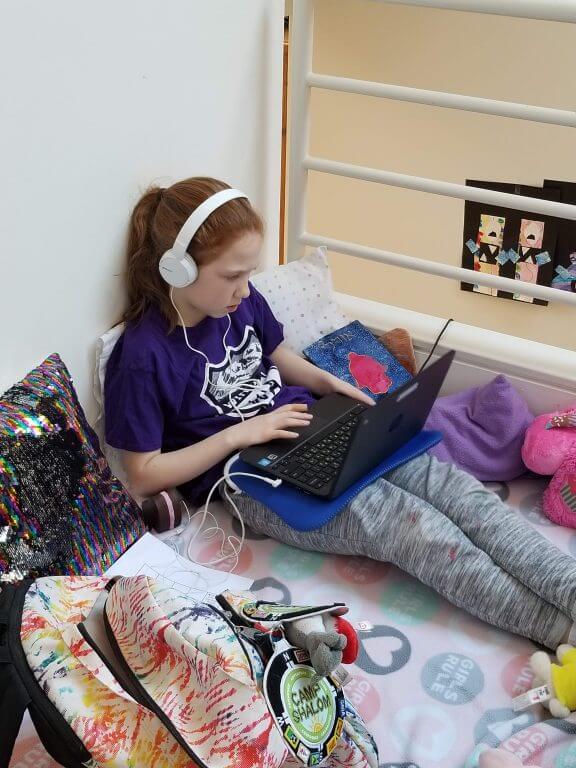
A Solomon Schechter student engaging in online learning.
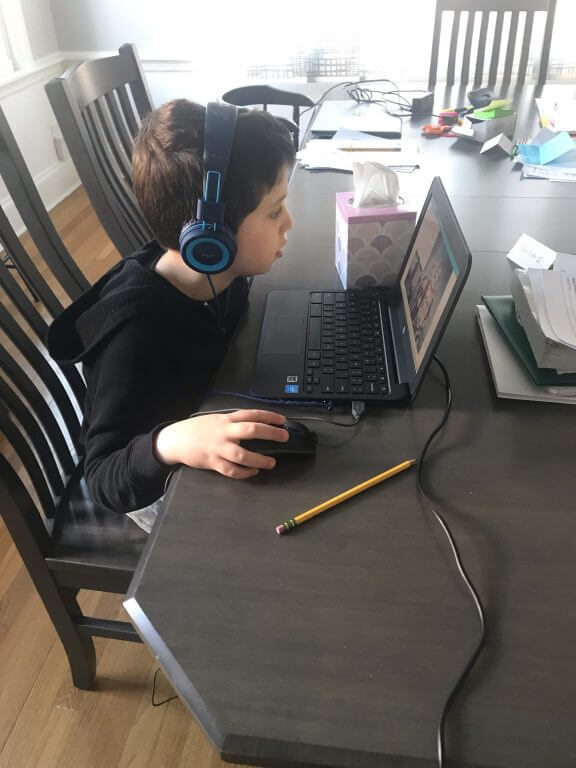
A Solomon Schechter student engaging in online learning.
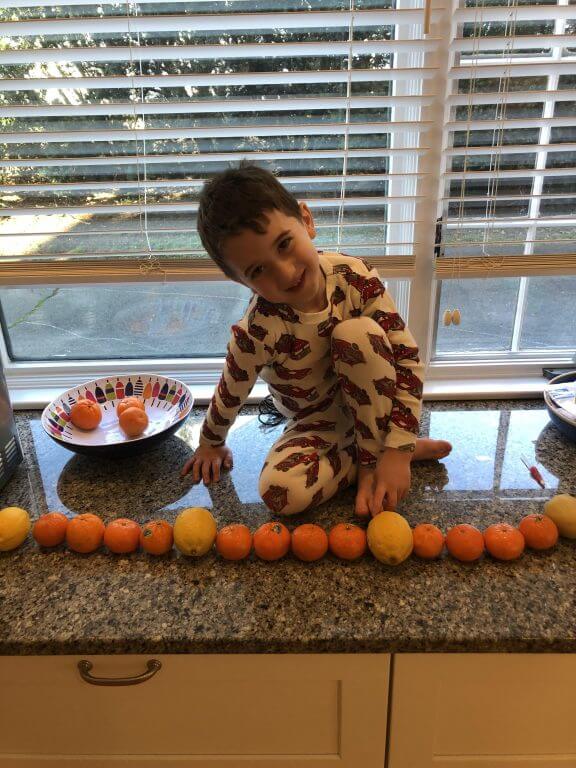
A Solomon Schechter student completing a math exercise from home.
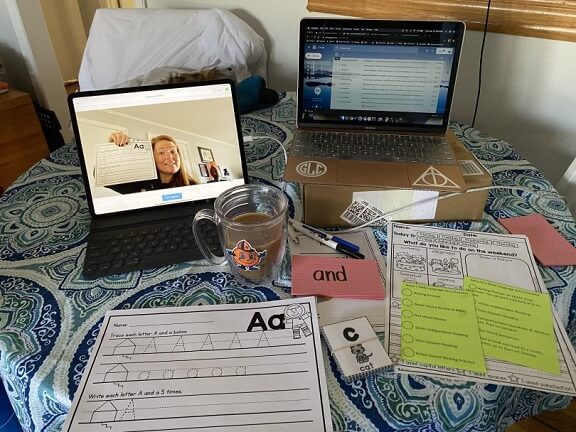
A Solomon Schechter student prepares for online instruction.
Solomon Schechter Day School
of Greater Hartford
26 Buena Vista Road
West Hartford, CT 06107
© Solomon Schechter Day School of Greater Hartford | Site design Knowles Kreative


